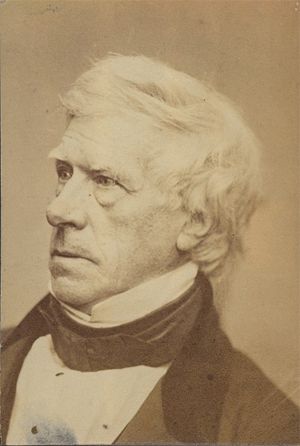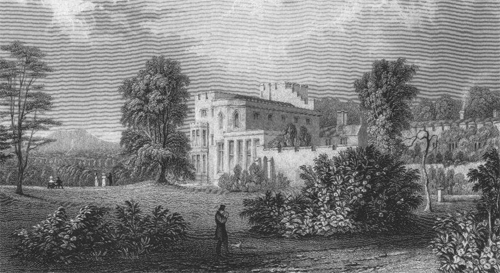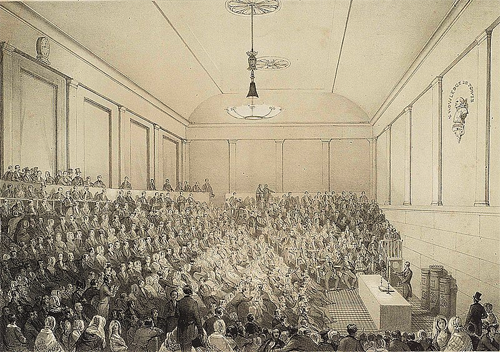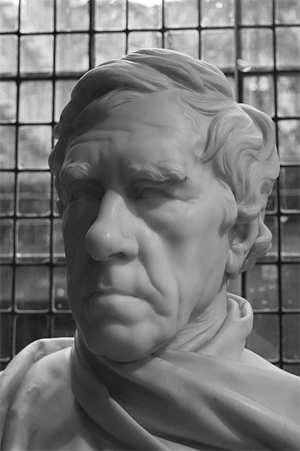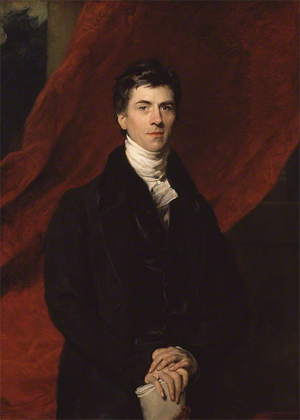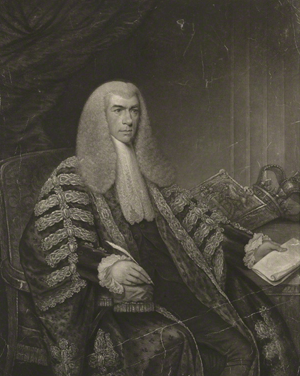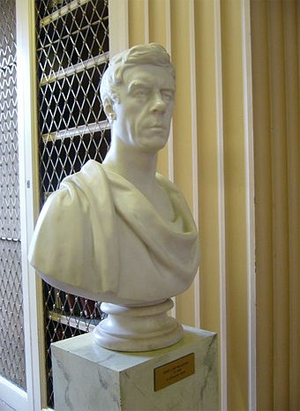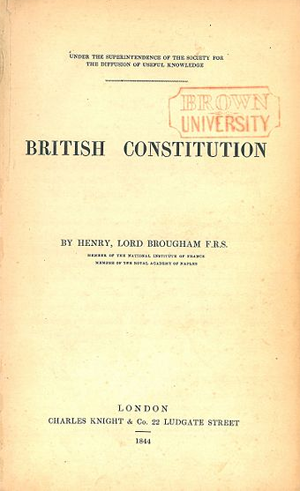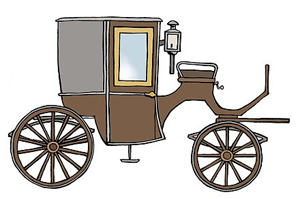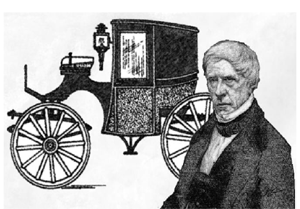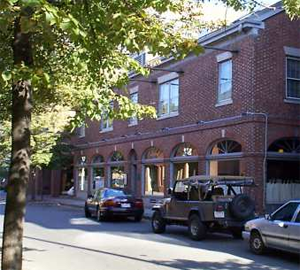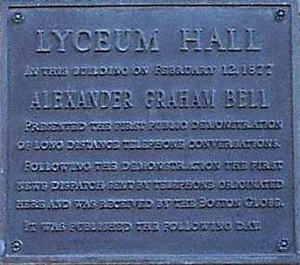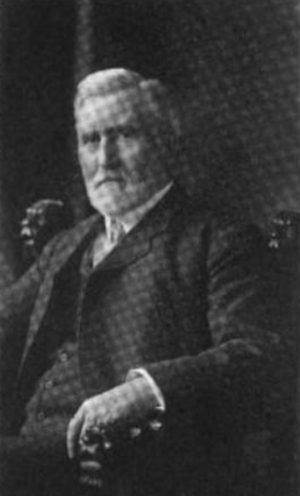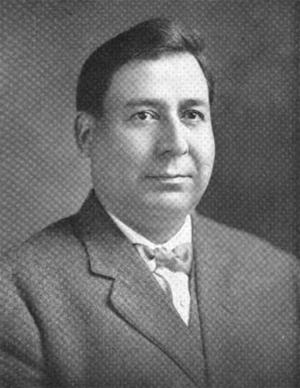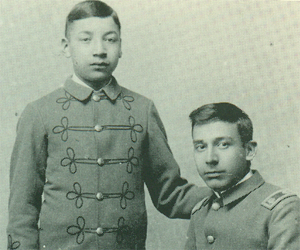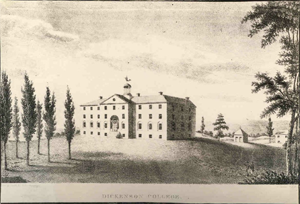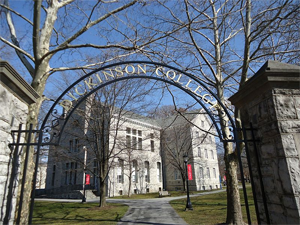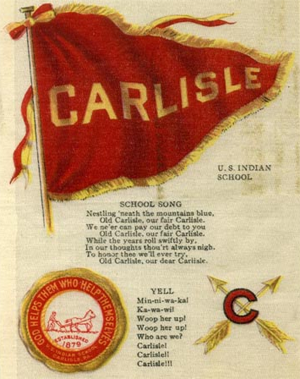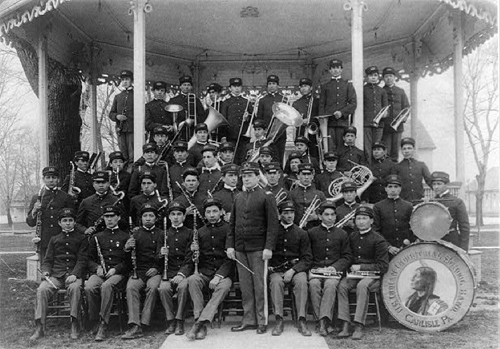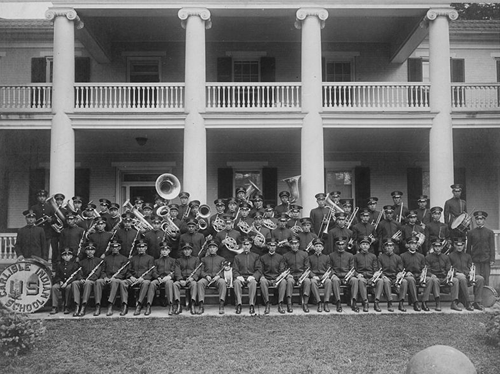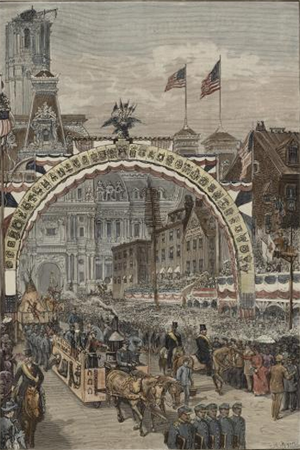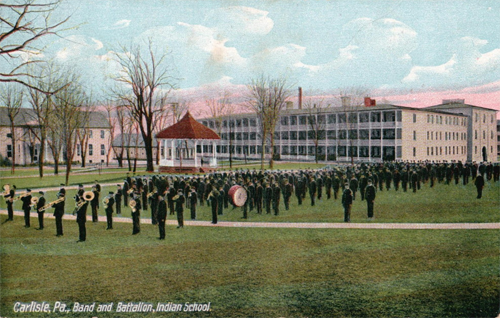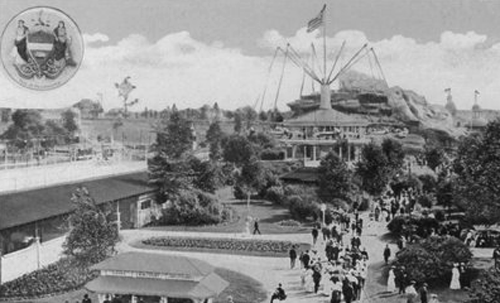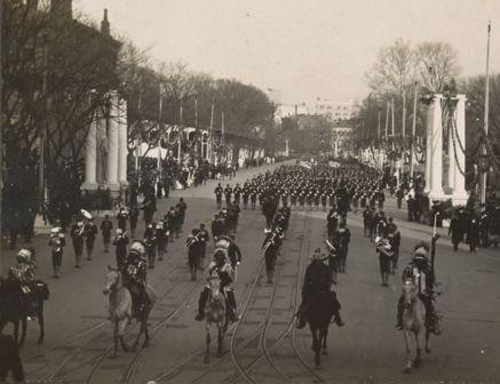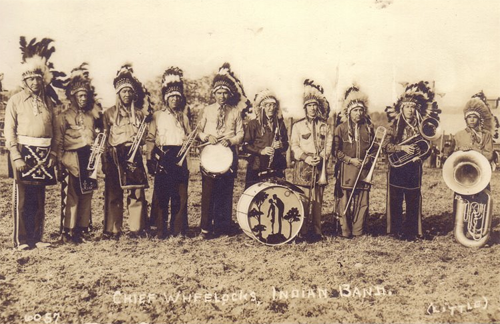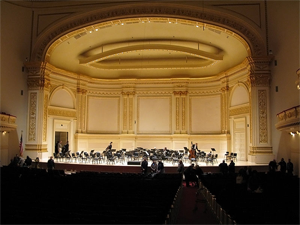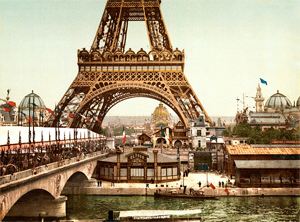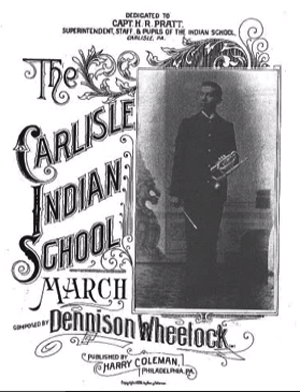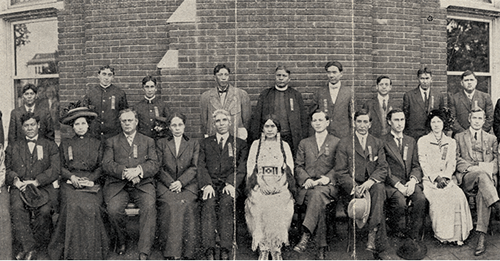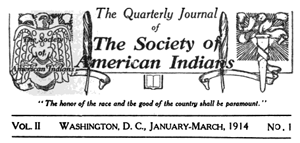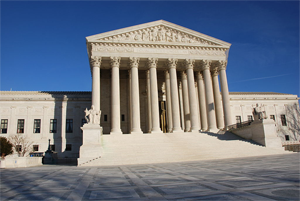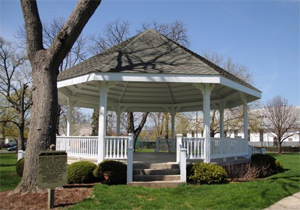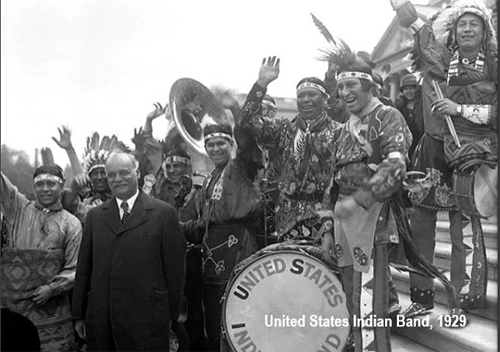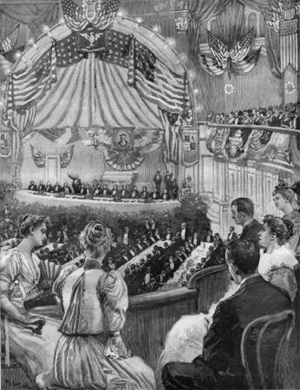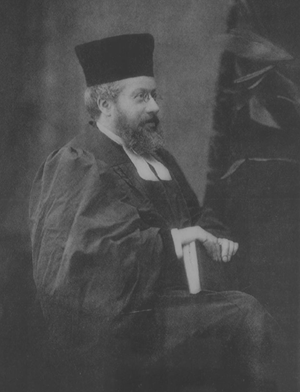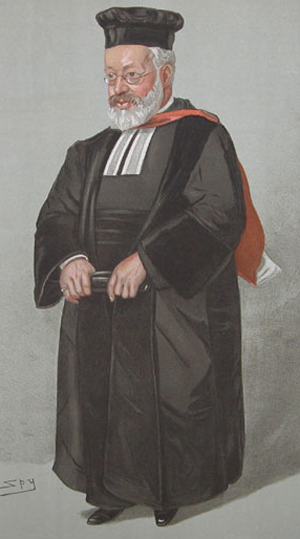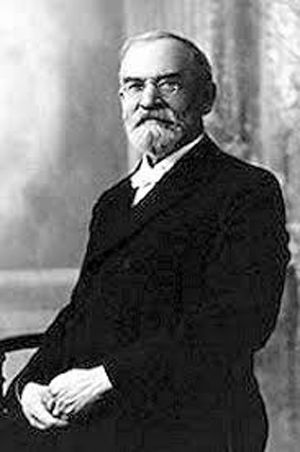by Wikipedia
Accessed: 2/27/20
REPORTS OF COMMITTEES. LYCEUM AND LIBRARY COMMITTEE. TO THE TRUSTEES OF THE PEABODY INSTITUTE.
Gentlemen: -- I transmit herewith the reports of the librarians and of the sub-committees of the Lyceum and Library Committee. They present in full the work of the Institute for the year ending Feb. 1, 1902.
Respectfully submitted,
J.W. Hudson,
Chairman Lyceum and Library Com.
Peabody, Feb. 1, 1902.
REPORT OF THE LIBRARY COMMITTEE FOR THE YEAR ENDING JAN. 31, 1902.
In accordance with custom, the report of the Library committee is herewith submitted.
As the present year marks the fiftieth anniversary of the gift of George Peabody to his native town, it may not be out of place to turn back to that occasion on which his memorable letter was read to the citizens of united Danvers at the Centennial dinner, June 16, 1852.
It was the crowning act in a day of general festivity. The importance of this first offering by Mr. Peabody cannot be rightly measured by the standards of today, nor is it easy at this time to realize the impression produced by what would now be regarded as an act of modest munificence. But it was the precursor of further benefactions in the interest of education, from which this Institute was reared and made ready for its mission of usefulness, a generation in advance of those which from his example have arisen throughout the land.
That the provisions of the gift were founded on wisdom and foresight, time has well proven. It was right that a heritage so precious should be properly safeguarded, and that the interpretation of “Education – a debt due from present to future generations,” should be in a spirit of liberality, toleration and fairness.
It is remarkable how few changes have been found necessary, either in the manner of electing trustees or choosing committees, since the Institute first opened its doors to the public. The regulations adopted with the approval of Mr. Peabody differ very little from those in force today. The duties devolving on the earlier Library committees were comparatively simple, after the first catalogs were issued and the library got in working order. On the other hand the work of the Lyceum committee was commensurate with the power and influence wielded by the great platform orators in the palmy days of the New England lyceum.
As the library grew and new books multiplied, the necessity for care and discrimination in making additions became manifest. If a member of the committee had an acquaintance with books and a love for them, so much the better for himself and the library.
In offering the report of the committee for this year, it is with the assurance that its members have performed their duties with fidelity and intelligence. The meetings have been well attended and as far as possible the merits of each book were discussed before a decision was made. Questions of doubt were settled by a vote of the committee. As a rule every book deemed essential to the library was purchased, but the monthly expenditures were in every case in proportion to the amount of money at the disposal of the committee.
It may be stated, as a hopeful sign, that books of a reprehensible character have diminished during the past y ear, and that while the number of frivolous and inconsequential publications is as great as ever, there have been fewer of that kind that offend decency and morality.
Among the notable books purchased were, in history – Halsey’s “Old New York Frontier”; biography – Booker Washington’s “Up from Slavery”; Allen’s “Life of Phillips Brooks”, Balfour’s “Life of Robert Louis Stevenson”; Riis’ “Making of an American” and Scudder’s “Life of James Russell Lowell”; in science and art – Wharton and Codman’s “Decoration of Houses”, “History of American Art” by Hartman, King’s “American Mural Painting”, “The Book on Oriental Rugs,” by Mumford, and that on “Colonial Furniture” by Lockwood; in fiction – Churchill’s “Crisis”, Parker’s “Right of Way” and Mary E. Wilkins’ “Portion of Labor”.
Bound volumes of the Salem Evening News have been added to the library, accessible at all times for consultation.
It is well to call the attention of the public to the practice recently inaugurated by certain publishers in making net prices for their books. This course will obviously cause a hardship to small libraries, and is already proving a detriment to institutions whose incomes are limited. The Massachusetts Library Club and the American Library Association have taken up the matter, and at the present time are conferring with the publishers with the expectation of obtaining some relief.
The tendency of today is to popularize the library as much as possible, to make it easy and comfortable for the indolent borrower and relieve him of trouble or effort when he wishes for a book. In some places there is already a movement for a house to house delivery, and in others cards are sent out announcing that certain books are ready for the borrower. How far paternalism can be carried in this line, is an interesting question.
The executive work of the library has been carried on in a most efficient manner. An intelligent system pervades every department. The enthusiasm and devotion of the librarian has infuse itself to the assistants, and courtesy and attention prevail at all times. The committee desire to express their appreciation of the care and watchfulness which the janitor, John D. McKeen, has exercised in the discharge of his duties, and they note with pleasure the harmony and loyalty on all sides, so essential to success.
Thomas Carroll, Chairman.
LYCEUM AND LIBRARY COMMITTEE. TO THE LYCEUM AND LIBRARY COMMITTEE.
Gentlemen: -- In the interest of economy your committee has deemed it advisable for the season of 1901 and 1902 to deal with the Central Lyceum Bureau, and with the exception of Mr. Frank Cousins all the lecturers have been engaged in this way.
We have been obliged to announce some lectures to take place on Tuesday and Wednesday evenings instead of on the customary Thursday evening, but the change was unavoidable and although it may not have suited some, it certainly pleased others, as they were not obliged, as in former years, to decide whether to devote a Thursday evening to a lecture or to the time-honored Salem Oratorio Society.
Mr. De Witt Miller, who was booked to appear at the Institute January second, failed to do so. It seems that the train which he was on was so behind time that he could not reach Peabody in season for his appointment. However, he telegraphed us in time to announce on the bulletin board at the Institute that there would be no lecture and the hall was not lighted up. The bureau has substituted for him Prof. Pearson, who will lecture in February.
As usual the illustrated lectures have been well attended, and the others have had a conspicuous number of empty seats.
The good order maintained for the past few years still continues and we hope that it will become habitual.
Appended is the course.
Nov. 14, Frank Cousins. Subject, “Historic Salem.” (Illus.)
Nov. 27, Rev. John Jay Lewis. Subject, “The Canadian Rockies – The Wonderland of the World.” (Illus.)
Dec. 11, Leonard Garver. Subject, “Jean Valjean. A Character Study in Conscience.”
Jan. 21, Hon. J. Wight Giddings. Subject, “Uncle Sam’s People.”
Feb. 5, Prof. P.M. Pearson. Subject, “Harris and His Contemporaries.”
Feb. 18, Frank R. Roberson. Subject, “Japan.” (Illus.)
Feb. 26, Fr. Francis C. Kelley. Subject, “The Yankee Volunteer.”
R.B. Mackintosh,
For the Lyceum Committee.
REPORT OF THE EBEN DALE SUTTON REFERENCE LIBRARY COMMITTEE. TO THE LYCEUM AND LIBRARY COMMITTEE OF THE PEABODY INSTITUTE:
The report of the Eben Dale Sutton Reference Library Committee for the year ending Jan. 31, 1902, is respectfully submitted.
The committee in charge of this library would report that they have attended to their duties conservatively and conscientiously; the books purchased are all reference books of high standing, interspersed with a few books on art. Among the most notable are The Dictionary of Philosophy and Psychology by Baldwin; The World’s Orators; The Publications of the Topsfield Historical Society; Sir Joshua Reynolds; Cyclopaedia of American Horticulture; Dictionary of Architecture and Building; Volume V of Murray’s English Dictionary; The Salon, 1901; Stark’s Old Boston; The Mohawk Valley; Century Library of Music.
It is thought by the committee that the library might be of more use if it could be open more evenings in a week. The idea is not a new one with us, for the innovation was tried in 1888 of opening every evening in the week, and was abandoned for lack of patronage, to Wednesday and Saturday evenings only. But thinking that possibly conditions had changed in a decade, we decided to open Monday evening as an experiment and observe the use made of the library on that evening and then if sufficient patronage warranted it, follow by opening other evenings. At present the library is open daily (Sundays excepted) from 2 to 6 P.M., and Monday, Wednesday and Saturday from 7 till 9 P.M. The tables have been rather poorly lighted since the electric light was introduced and an effort is now being made to improve it. To this end, the handsome gas drop-lights are being made over into electric lamps, and when they are finished it is hoped to have more light and better placed for reading. The lamps now in use are temporary. If the new lamps, when installed, are satisfactory, the complete plan is to wire to them from the floor under the tables thus doing away with the long length of cord pendent from the ceiling. This work can be be done in summer when the carpet is up.
The statistics of the library will be found appended by the librarian, who has attended to her duties most acceptably.
For the Committee by
Fred W. Bushby, Chairman….
READING ROOM COMMITTEE. TO THE LYCEUM AND LIBRARY COMMITTEE.
The report of the Reading Room Committee for the year ending January 31, 1902, is respectfully submitted.
The attendance during the past year has continued good, also the decorum of the younger element has been good, always being under the watchful eye of Mr. McKeen.
We are taking at the present time sixty-one magazines and periodicals combined, having added World’s Work and the International Studio during the year, the latter in place of Art Education, discontinued. There have been several works bound during the year, which are mentioned in the report of the Librarian.
Alvah O. Moore, Chairman.
LIBRARIAN’S REPORT. TO THE LYCEUM AND LIBRARY COMMITTEE.
The report of the Librarian for the year ending January 31, 1902, is respectfully submitted.
While the year just closed has been uneventful, it can be considered a successful one measured by the standard of circulation, which was 39,417 as compared with 34,824 in 1900-1 and 37,473 in 1899-1900.
The increase was due, in large measure, to the changes in the rules governing the issue of borrowers’ cards made by the Library Committee, which went into effect October 1, 1901. These changes were as follows: The reduction of the age limit of borrowers from 14 to 12 years, and the privilege extended to every borrower of receiving a special card in addition to his regular card, upon which special card any book in the library not classed as fiction may be taken out. That these changes have been appreciated by the public is evidenced by the fact that 104 children between the ages of 12 and 14 have taken out cards, and 203 borrowers have taken out special cards.
At the same time a new registration of borrowers was begun, each borrower being required to sign a new application slip, and receiving a new number. Since October 1st, 1,106 borrowers have registered; of this number 904 are old borrowers re-registered and 202 have never before had cards.
The most important event in the library field the past year was the decision of the Library of Congress to undertake to supply copies of the printed catalog cards prepared for its own use to such libraries as wished to subscribe for them, at a nominal price. At a meeting of the Massachusetts Library Club held in Boston in October last, Mr. Herbert Putnam, Librarian of Congress, gave a detailed description of what it was proposed to undertake, the scheme being in brief to supply to libraries desiring, printed cards for any or all new copyrighted books as issued, for miscellaneous books as acquired by the Library of Congress, and also cards for any other books now in that library as fast as the same are reached in the process of re-classification now going on. As more than 90 per cent of the books we purchase are copyrighted books, and as the work of rewriting the cards in our card catalog is still far from completion, the entire proposition is of special interest to us, consequently our subscription was promptly entered and we have already received over 1,000 cards upon our orders.
Pressure of other work has interfered materially with the work on our card catalog, but 3,440 cards representing 1,777 books have been re-written or procured from the Library of Congress, under the above mentioned subscription.
Gifts to the library have been more numerous than usual. Among the more notable are the following: From the Art Class of 1900-1 of the Peabody Woman’s Club, 500 half-tone pictures illustrating the work of famous artists of the world. These pictures are mounted on 8x10 mounts and arranged in envelopes by authors and may be taken out the same as books. Their use thus far has been confined chiefly to the teachers in the public schools, but they will prove of great service to anyone engaged in the study of art.
From Mr. William B. Trask of Dorchester, we received forty volumes from the library of the late Isaac Bullock. Mr. Bullock was a native and long-time resident of this town, and a constant patron of this library in its earlier days. These books are of a miscellaneous character, and include the school books used by Mr. Bullock in 1810, together with many volumes of the classics, and all are copiously annotated and illustrated with drawings made by Mr. Bullock.
From Mrs. Alfred McKenzie of Peabody we received fourteen volumes of works on Spiritualism from the library of her late husband.
Our membership in the Library Art Club has been continued, and the following exhibitions have been held:
Views in Holland, Feb. 4-27.
Views of English Country Churches, Mar. 25-Apr. 15.
Views of Orvieto, Italy, May 6-27.
Views of Florence, 2d series, July 1-22.
Views of Venice, 4th series, Aug. 12-Sept. 2.
Lowell & Co.’s Engravings, Oct. 14-Nov. 4.
Views in Old Nuremburg, Nov. 26-Dec. 17.
Masterpieces of Grosvenor House, Dec. 17-Jan. 6, 1902.
Weekly deliveries have been continued through our West Peabody delivery station, and 2,130 books have been issued in this manner.
In the reading room, World’s Work and the International Studio have been added to the list of periodicals on file, the latter in place of Art Education discontinued, and the Delineator, Electrical World and Engineer, Ladies’ Home Journal, Land of Sunshine and Woman’s Home Companion, not heretofore bound, are now bound as the volumes are completed.
The total number of periodicals now currently bound is fifty, a net increase of twelve in the past three years.
The counter for the display of new books has again been extended, in order that a section might be devoted exclusively to books for boys and girls, and they appear to thoroughly appreciate it. Some 450 books are now constantly assigned to this counter.
An additional alcove of the regular pattern will be required the coming year to relieve the crowding again becoming apparent in our fiction shelves.
Acknowledgment is due to our janitor, Mr. McKeen, for his hearty cooperation in all ways and at all times in the work of the library.
Statistics in the usual form are appended, with a list of donors of bound volumes and of periodicals on file in the Reading Room.
Lyman P. Osborn, Librarian.
-- Annual Report of the Trustees of the Peabody Institute, of Peabody, by Peabody Institute (Peabody, Mass.).
Peabody Institute
Type: Private conservatory; Preparatory school
Established: 1857 / opened 1866; 1977 / 1985 (became part of JHU)
Parent institution: Johns Hopkins University
Dean: Fred Bronstein, DMA
Location: Baltimore (main campus), Maryland, US
Campus: Urban/Suburban
Newspaper: The Peabody Post
Website http://www.peabody.jhu.edu
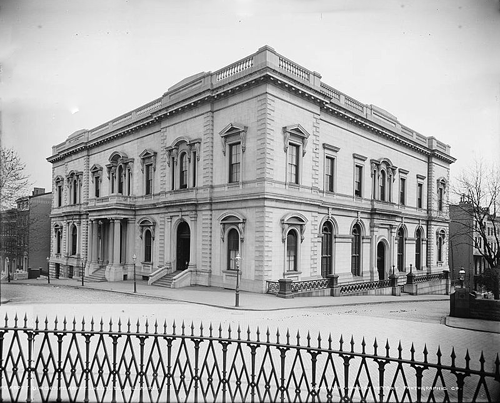
Peabody Institute, East Mount Vernon Place, c. 1902
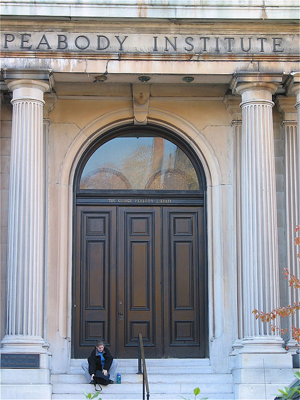
George Peabody Library, (east wing) - built 1878
The Peabody Institute of The Johns Hopkins University (JHU) is a music and dance conservatory and university-preparatory school in the Mount Vernon-Belvedere neighborhood of northern Baltimore, Maryland, United States, facing the landmark Washington Monument circle at the southeast corner of North Charles and East Monument Streets (also known as intersection of Mount Vernon Place and Washington Place).
The Peabody Institute was founded in 1857 and opened in 1866 by merchant/ financier and philanthropist George Peabody, (1795–1869), and is the oldest conservatory in the United States.[1] Its association in recent decades begun in 1977 with JHU allows students to do research across disciplines.[2]
History
George Peabody, (1792-1869), founded the Institute with a bequest of about $800,000 from his fortune made initially in Massachusetts and later augmented in Baltimore, (where he lived/worked from 1815 to 1835) and vastly increased in banking and finance during following residences in New York City and London, where he became the wealthiest American of his times.
Completion of the white marble Grecian-Italianate west wing / original building housing the Institute, designed by Edmund George Lind, was delayed by the Civil War. It was dedicated in 1866, with Peabody himself, traveling across the North Atlantic Ocean, speaking at the ceremonies on the front steps in front of landmark Washington Monument circle before a large audience of notaries and citizens including hundreds of assembled pupils from the Baltimore City Public Schools.[3] Under the direction of well-known musicians, composers, conductors, and Peabody alumni, the conservatory, concerts, lecture series, library and art gallery, led by men of literary and intellectual lights along with an annual awarding of gold, silver and bronze medals with certificates and cash prizes to top graduates of the city, known as the "Peabody Prizes", attracted a considerable national attention to the Institute and the city's growing culture. Under strong academic leadership, the Peabody evolved into an internationally renowned cultural and literary center through the late 19th and the 20th centuries, especially after a major expansion in 1877-1878, with the completion of its eastern half housing the George Peabody Library with iconic five stacked tiers of wrought iron balconies holding book stacks/shelves, surmounted by a beveled glass skylight, one of the most beautiful and distinctive libraries in America.[4]
The Institute building's 1878 east wing on East Mount Vernon Place containing the affiliated George Peabody Library, joined the other rows of architecturally significant structures of townhouses, mansions, art gallery, clubs, hotels, churches around the Nation's first memorial to its first President which developed into the Mount Vernon-Belvedere neighborhood, carved from the rolling hills north of Baltimore Town on the estate and nearby mansion of "Belviedere", home of Revolutionary War commander of famous "Maryland Line" troops in the Continental Army, Colonel John Eager Howard, (1752-1827). The Institute grew from a local academy, with an art and sculpture gallery, public lecture series, and the extensive non-circulating reference library which predated the later first public library system in America. That library was created and endowed in 1882 by Peabody's friend and fellow "Bay-Stater", merchant/philanthropist Enoch Pratt, (1808–1896). (In turn, both Peabody and Pratt inspired steel industrialist and multi-millionaire Andrew Carnegie, (1835–1919) of Pittsburgh, Pennsylvania, who endowed more than 2,500 libraries and buildings across America).
In 1978, "The Peabody" began working with The Johns Hopkins University (founded by will/bequest by another extremely wealthy merchant, Johns Hopkins, (1792-1873) in 1876), under an affiliation agreement. In 1985, the Institute officially became a division of "The Hopkins".
Peabody is one of 156 schools in the United States that offers a Doctorate of Musical Arts degree. It houses two libraries: the historical George Peabody Library (originally the Peabody Institute Library) established when the Institute opened in 1866, renowned for its collection of 19th-century era and other rare books and the Arthur Friedheim Library (named for Russian-born pianist/conductor Arthur Friedheim,1859-1932), a separate music reference academic library added to supplement the Institute's original library (now the separate George Peabody Library in the east wing) that includes more than 100,000 books, scores, and sound recordings.
The Conservatory was later supplemented by a preparatory school ("Peabody Prep"), and an auditorium/music hall. Under instructions from Peabody's original 1857 bequest - an art and sculpture gallery, non-circulating public research library, with a public lecture series, and a system of awarding gold, silver and bronze medals, and certificates with money prizes for top honor graduates of Baltimore's then only public secondary schools; (the all-male Central High School of Baltimore, founded 1839 (now The Baltimore City College, since 1868) and female Eastern and Western High Schools, founded 1844). "Peabody Prizes" are awarded to top high school graduates beginning the following year at commencement exercises and continued for 122 years as an honored annual tradition with public announcements to city's media. Additional structures to the south and east of somewhat jarring modernistic light tan/brown brick along East Centre Street and Saint Paul Street (with a street-level parking garage) were constructed in 1971 with two corner towers. During the early 1990s, several remaining townhouses on East Mount Vernon Place to the east intersection with St. Paul were acquired and rebuilt leaving their front original facades facing the historic Monument squares /pocket parks but rebuilt interiors and extended to the rears. Along with other townhouses acquired to the south with distinctive iron scrollwork balconies facing North Charles Street /south Washington Place, for a senior citizens hostel. This enabled The Peabody to round out its tight campus of attached buildings on the entire city block bounded by Charles, Mount Vernon Place, St. Paul and Centre Streets.
Preparatory
Peabody Preparatory offers instruction and enrichment programs for school-age children across various sites in Baltimore and its surrounding counties: "Downtown" (Baltimore, main campus), Towson, Annapolis (Maryland Hall for the Creative Arts) and Howard County (in cooperation with three schools).[5]
Peabody Children's Chorus
The Peabody Children's Chorus is for children ages 6 to 18. It is divided into three groups: Training Choir, Choristers, and Cantate, grouped by age in ascending order. They practice weekly in Towson or Columbia, Maryland, and sing in concerts biannually under the instruction of Doreen Falby, Bradley Permenter, and Julia Sherriff. Cantate, ages 12 to 18, frequently perform with other groups, such as the Baltimore Symphony Orchestra, The Baltimore Chamber Orchestra, The Mid-Atlantic Symphony Orchestra, and the Baltimore Choral Arts Society, and have toured both regionally and internationally.
Notable students
• Tori Amos, singer, songwriter; the youngest student ever admitted to the Institute.
• Dominick Argento, composer
• Zuill Bailey, cellist
• Manuel Barrueco, guitarist
• Carter Brey, cellist
• Petrit Çeku, Guitarist
• Angelin Chang, pianist
• George Colligan, pianist/trumpeter/drummer/composer
• Joshua Fineberg, composer
• James Allen Gähres, conductor (music)
• Philip Glass, composer[6]
• Hilary Hahn, violinist
• Michael Hedges, guitarist
• Michael Hersch, composer
• Margarita Höhenrieder, pianist
• Kim Kashkashian, violist
• Kevin Kenner, pianist
• O'Donel Levy, guitarist
• David Meece, singer, songwriter
• Su Meng, Guitarist
• Sylvia Meyer, harpist; the first female member of the National Symphony Orchestra
• Thomas F. McNulty, a president of the WWIN-FM Baltimore and a member of the Maryland House of Delegates from 1942-1946
• Piotr Pakhomkin, Guitarist
• Rebecca Pitcher, actress; primarily known for playing Christine in the Broadway adaption of The Phantom of the Opera
• Awadagin Pratt, pianist
• Lance Reddick, actor, musician
• Ilyich Rivas, conductor (music)
• Lillian Smith, author of Strange Fruit
• Ana Vidović, Guitarist
• André Watts, pianist
• Igor Zubkovsky, cellist
Notable faculty
• Diran Alexanian, cello
• Manuel Barrueco, guitar
• Oscar Bettison, composition
• George Frederick Boyle, piano
• Garnett Bruce, opera
• Elliott Carter (1946–48), composition
• Jay Clayton, jazz
• Thomas Dolby, Music for New Media
• Du Yun, composition
• David Fedderly, tuba
• Leon Fleisher, piano
• Elizabeth Futral, voice
• Asger Hamerik, Director (1871–1898)
• Michael Hersch, composition
• Ernest Hutcheson, piano
• Jean Eichelberger Ivey, composition, electronic music
• Katharine Lucke (1875-1962) - organ, composition
• Nicholas Maw (1935–2009), composition
• Anthony McGill, clarinet
• Gustav Meier, conducting
• Edward Palanker, clarinet
• Amit Peled, cello
• Marina Piccinini, flute
• Joel Puckett, theory
• Kevin Puts, composition
• Hollis Robbins, humanities
• Berl Senofsky, violin
• John Shirley-Quirk, voice
• Robert van Sice, percussion
• Gary Thomas, Jazz
• Barry Tuckwell, horn
• Frank Valentino, voice
• John Walker, organ
• Chen Yi, composition (1996-1998)
See also
• Music school
• Music schools in the United States
References
1. "GEORGE PEABODY.; Death of the Great Philanthropist—His Last Hours Passed in London—His Career and Benefactions". The New York Times. November 5, 1869. Retrieved February 18, 2014.
2. "Peabody to Affilliate [sic] With Johns Hopkins". The New York Times. January 1, 1977. Retrieved February 18, 2014.
3. Wierzalis, Bill and Koontz, John P., Images of America: Mount Vernon Place (2006) p. 60-61. Arcadia Publishing ISBN 0-7385-4238-5
4. Holland, Bernard (January 4, 1990). "The Peabody, Ready or Not, Is Pushed to Go Out on Its Own". The New York Times. Retrieved October 9, 2009.
5. Preparatory Campuses
6. Fadulu, Lolade. "'I Expected to Have a Day Job for the Rest of My Life'". The Atlantic. Retrieved April 20, 2018.
External links
• Official website

